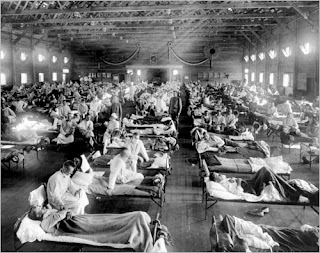You don't often hear an historical fiction writer say that. We all strive to be as true to our time period as we can. But in some cases, I just don't think it's necessary, or even desirable to do so.
I suppose first I should state my firm belief that I don't care who you are, or what type of historical fiction you are writing, as a contemporary author it is impossible for your fiction not to be anachronistic. Period. We are all creatures of our time. We are influenced by the time in which we live and that will, no matter how hard we work to prevent it, show in our writing. Even Shakespeare's works are anachronistic if we look at plays like Julius Caesar as historical fiction.
Let's start with language. Now, I'm not saying that we should throw modern colloquialisms into our writing willy nilly. I don't want to read a Regency character saying something like, "dude, not cool." You've lost me at that point. But I also don't want to read a modern historical romance with dialog like this: "Do not you want to know who has taken it?" Yes, Jane Austen can get away with it, because when she wrote it the language WAS contemporary. Her characters voices are easy and believable. But for almost all modern historical fiction authors dialog like that comes off sounding stilted and forced. And that will pull me out of a story no matter how historically accurate it is. Because it's awkward for me to read that. It doesn't sound natural to me, and I know it's not natural to the author.
I recently read a novella that took place during the Victorian era. I wanted to like it. The dialog and language were period appropriate, and even the character's inner monologue was appropriate in voice and subject. But, even knowing that, I simply could not like it. The language was stilted and forced and put a wall between me, the reader, and the characters that I could not get over. I was kept at a distance, an observer of the story rather than being pulled in and experiencing the emotions of the characters. As this was a romance, that was a major barrier. And I knew that had the author not adhered so closely to period appropriate language and thought I would have enjoyed the story much more. If I felt these characters were struggling with issues that I could identify with, I would have been drawn into their story. As anachronistic as that may have been, it would have made a better story for me, a contemporary reader.
And that's the real point here. We may be writing historical fiction, but we want to write a story that appeals to a contemporary reader. As an author of historical erotic romance, for me this often results in anachronistic story lines. I've had readers point out that what occurs in some of my books--erotic menage stories with a happily ever after--would never have actually happened during the Regency period. Well, no, probably not. But that's why I write historical fiction and not historical non-fiction (which I have written for academic purposes.) I'm sure there are papers written and published somewhere about the fact that most historical romance heroines are anachronistic. They are far too self-aware, independent, and self-actualizing to really represent women of their time period, allowing for exceptions to every rule. But that's what modern readers want to see in romances, heroines they can relate to, who are struggling with the same choices they face.
This may not be true of all historical fiction writers, but for me the setting of my books is similar to a set on a stage, it's the background for the actual story and not the main element of the book. The book is about the characters and what happens to them, their conflict and motivation and resolution. What they are wearing, the language they use and the food they eat lend depth to those experiences, but rarely do they influence them.
That being said, I dislike inaccurate historical facts as much as the next person. I have a rather flexible willing suspension of disbelief when it comes to a character's motivation, goals, actions, even language to a certain extent, but don't get your facts wrong. Because that will make me put a book down and not pick it up again. There are so many resources for writers on the web--just a few clicks away, you don't even have to go to the library anymore--that to get your facts wrong is inexcusable. And facts include dress, food, language and history.
So, what's your opinion on anachronisms in historical fiction? Are you flexible when it comes anachronistic story lines and characters? What about language? Does genre make a difference?







